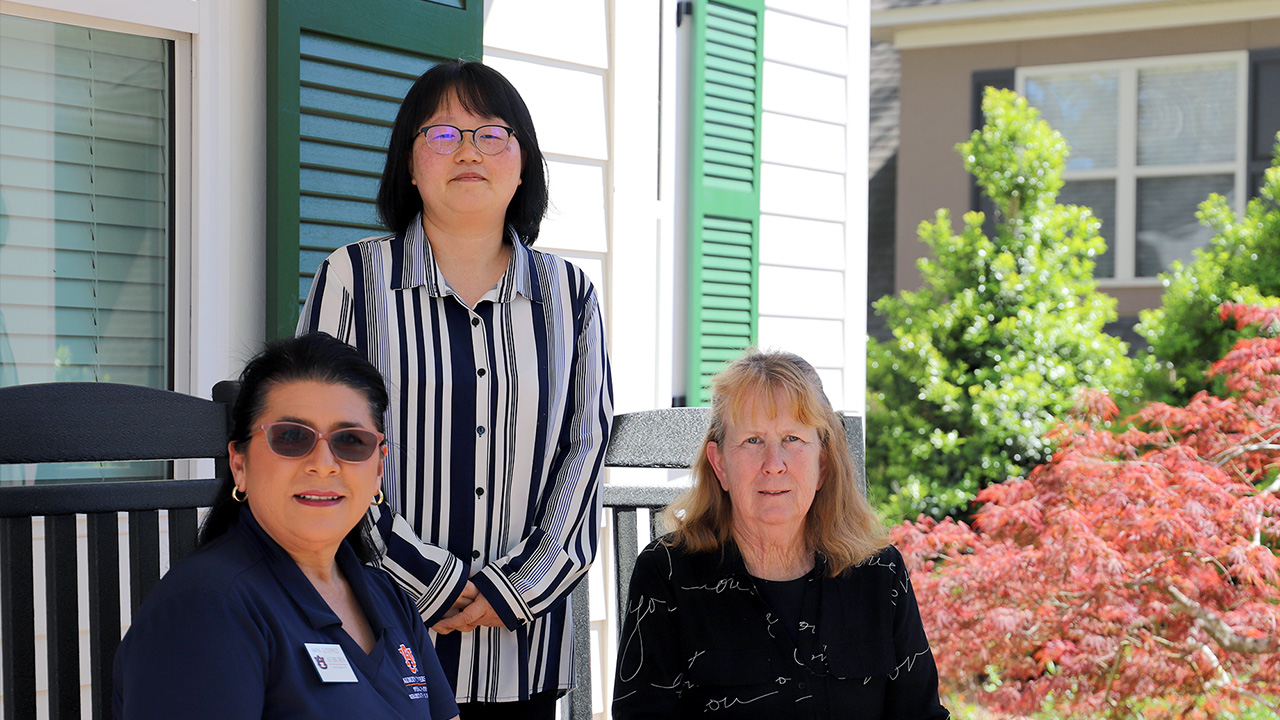content body
According to the Centers for Disease Control, one in 36 children has autism spectrum disorder.
When a child receives an autism diagnosis, it’s often an overwhelming and confusing time for parents and other family members. But when those family members don’t speak English, the diagnosis can be even harder to navigate.
Luckily, families in east central Alabama have access to the Regional Autism Network (RAN) at Auburn University, housed in the College of Education. The state-wide network, launched in 2017, is divided into five regions, all of which are located at major universities. Auburn’s RAN is not only the largest, covering 20 counties, but it was the first to hire a family navigator and to offer translation and interpretation services for non-English speaking families.
The director of Auburn’s RAN is Doris Hill, an associate research professor in the Department of Special Education, Rehabilitation and Counseling, and Maria Gutierrez serves as family navigator. When non-English speaking families reach out for help, Kim Mikyung, Korean Community Liaison, works with Korean-speaking families and Gutierrez translates and interprets Spanish. They can call a language access line for translation of other languages.

Auburn's Regional Autism Network staff visit resource fairs, schools and libraries to spread the word about how they can help.
The RAN hosts monthly online trainings in areas that include social skill development, advocating for special needs and respite care opportunities. In 2023, the organization was chosen to participate in Tiger Giving Day, where it requested funding to extend these trainings and workshops to Spanish-speaking families. This allowed for simultaneous interpretation services during live Zoom presentations and Spanish-language educational materials.
Gutierrez saw these resources make a real difference for families and is hoping they can continue to offer them indefinitely.
“Sometimes, parents are so overwhelmed, especially those families for whom this is new,” she said. “Mexico doesn’t have special education, and neither do Korea or Guatemala — they don’t have anything like this. It’s critical for families to be educated, but you have to first put yourself in their shoes to see if these concepts even make sense to them.”
Since the state’s network is only a few years old, many people are unfamiliar with the RAN, so Hill and Gutierrez spend a lot of time visiting rural areas where families dealing with a diagnosis are not connected with a support system. They reach out to primary care providers and dentists, who are often the first to notice neurodivergent behavior, and go to resource fairs, schools, libraries and even the women’s prison to spread the word about how the RAN can help.
“We are out and about,” Gutierrez said. “Yesterday, I was at an event at the public library in Randolph County, and the majority of the attendees were people from the school system: the special education coordinator, teachers, the principal. Only one of them knew about the RAN. We still have five counties we haven’t ever heard from, so we need to target those areas.”
While Spanish and Korean are Alabama’s most frequently spoken languages after English, the staff makes sure any family that comes their way is connected with the resources they need. Gutierrez recently received a call from a concerned father who speaks K’iche,’ a regional indigenous language in Guatemala. After obtaining help from an interpreter, she was shocked to realize his 10-year-old son, a United States citizen, had been turned away from public school three different times due to his diagnosis, in violation of the Americans with Disabilities Act.
Need support or know someone who does?
Contact Auburn's Regional Autism Network staff“I told them, ‘He has a right to be in school, to be educated and to receive services,’ and their eyes got huge,” she said. “It’s going to take a lot of people involved and a lot of coordination, but that child is now enrolled, and the family is on the right track. We make sure they fully understand what he learns at school, what occupational therapy is and why speech and Applied Behavior Analysis are important.”
While their workload is heavy and their days can be long and frustrating, Hill, Gutierrez and Kim wouldn’t want to work anywhere else. No matter what language families speak, the RAN is here for them now — and will be in the future.
“It’s overwhelming the first time you talk to a family,” said Hill. “We always tell them, ‘We’re answering the most important questions now, but you’re going to have questions later as you get to different phases of your child’s life, and you can call us again then.’”





